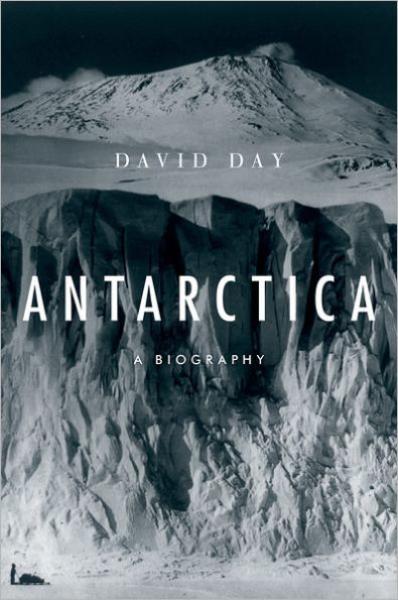Description
investigation, and contentious geopolitics.
Drawing from archives from around the world, Day provides a sweeping, large-scale history of Antarctica. Focusing on the dynamic personalities drawn to this unconquered land, the book offers an engaging collective biography of explorers and scientists battling the elements in the most hostile place
on earth. We see intrepid sea captains picking their way past icebergs and pushing to the edge of the shifting pack ice, sanguinary sealers and whalers drawn south to exploit "the Penguin El Dorado," famed nineteenth-century explorers like Scott and Amundson in their highly publicized race to the
South Pole, and aviators like Clarence Ellsworth and Richard Byrd, flying over great stretches of undiscovered land. Yet Antarctica is also the story of nations seeking to incorporate the Antarctic into their national narratives and to claim its frozen wastes as their own. As Day shows, in a place
as remote as Antarctica, claiming land was not just about seeing a place for the first time, or raising a flag over it; it was about mapping and naming and, more generally, knowing its geographic and natural features. And ultimately, after a little-known decision by FDR to colonize Antarctica,
claiming territory meant establishing full-time bases on the White Continent.
The end of the Second World War would see one last scramble for polar territory, but the onset of the International Geophysical Year in 1957 would launch a cooperative effort to establish scientific bases across the continent. And with the Antarctic Treaty, science was in the ascendant, and
cooperation rather than competition was the new watchword on the ice. Tracing history from the first sighting of land up to the present day, Antarctica is a fascinating exploration of this deeply alluring land and man's struggle to claim it.
"Solid as a block of Antarctic ice itself... [Day's] latest book draws on five years of meticulous research to tell the story of human endeavour in Antarctica, the last continent to be discovered. It paints a poignant biographical picture of the characters involved, the gruelling expeditions
undertaken, and the rivalries between nations as they raced to chart the continent and claim possession of it ...excellent." --The Economist
"This is an intoxicating book by Australia's greatest historian." --Peter FitzSimons, Australian journalist and author
"A remarkable work of scholarship and sustained analysis." - Ross Fitzgerald, The Australian
"The fascinating narrative offers a compelling historical understanding of passion to control nature and the way national and economic interests drive scientific exploration... Day's work is epic and incorporates this important, unique unpopulated land into the consciousness of scholars."
--Choice
"This scholarly but readable volume surveys the geopolitical history of Antarctica from the dawn of the Age of Reason to the present day. Day is a serious historian. His research has taken him around the world, into archives and libraries and into the minds and intentions of governments." --Greg
Ray, Newcastle Herald (AU)
"An eye-opening history of the race amongst nations to be the first to plant their flag in the frozen land. It is a big book, covering Captain James Cook's attempts to find the 'Great South Land' in the 1770s to the present and all the explorers and adventurers in between."
--Courier Mail (Brisbane, Australia)
" For those who enjoy sweeping historical biographies, David Day's Antarctica is a polar reference piece par excellence. "--The Cairns Post (Australia)
"In his latest book, noted Australian historian David Day seeks to capture the spirit of Cook and Mawson and the deeds of subsequent explorers, which eventually turned into a race for Antarctic sovereignty. Unlike traditional histories of Antarctica, which focus almost exclusively upon exploration
and individual explorers, Day blends that narrative with the increasing politicisation of Antarctica as European powers, then the Americans, and eventually Argentina and Chile jostled for territory." --Sydney Morning Herald
"2012 is the centenary of Scott and Amundsen's race to the South Pole, and publishers have jumped on the band sledge. The winner of the bid for territory goes to Antarctica: A Biography... by David Day, a historian and Australian national treasure. This enormous book approaches the subject head on.
The colourful end papers are eloquent: the 'New Map of the World 1703' at the front shows a blank 'taint of ignorance' at the South Pole; at the back there is a more modern cartographer's Antarctica, with its surrounding islands. What Day aims to deliver is the bit in between. The result is a clear
and intriguing history of flag-raising."--Literary Review (UK)
"Day has done a remarkable job of collating information from rich and varied international sources. He draws from original accounts, newspaper articles, the recently released papers of US naval officer and polar explorer Richard Byrd..." -- Nature
"Day weaves a masterly tale of expeditions and their leaders in this hugely detailed and well-researched tome. There are some absolute gems with new insights for even the most avid readers on the subject." -- Times Higher Education
"His thought-provoking and detailed work reminds us that the future of Antarctica remains even more fiercely disputed and uncertain than when Bellingshausen and Bransfield first saw the continent." -- Irish Times
"A well-researched, scholarly work that examines nearly 250 years of history with a deft pen and a dry wit."-- Country Life
"Day's Antarctica is an impressive piece of work, an impartial and deeply researched account of the politics of polar annexation."--Times Literary Supplement
"Well-researched history... An intriguing addition to a centuries-long geopolitical adventure story." --Kirkus Reviews
Product Details
- Oxford University Press, Brand
- Jun 20, 2013 Pub Date:
- 0199861455 ISBN-10:
- 9780199861453 ISBN-13:
- 626 Pages
- 9.4 in * 6.1 in * 2 in Dimensions:
- 2 lb Weight:




